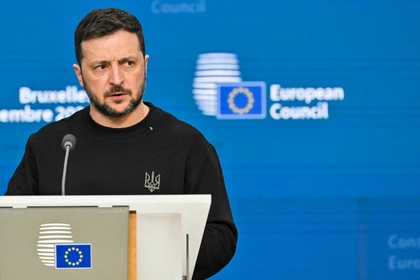The European Union heaped further international pressure Sunday (4 August) on Venezuelan President Nicolás Maduro, joining Washington and Latin American nations in refusing to recognize the win he has claimed in the recent election marked by fraud allegations.
The latest rejection comes as Venezuela’s opposition backed outside calls for the results of last week’s disputed presidential vote to be published, as the Pope said Venezuelans must “seek the truth” and warned against further violence.
JOIN US ON TELEGRAM
Follow our coverage of the war on the @Kyivpost_official.
The results published by Venezuela’s National Electoral Council on 2 August “cannot be recognised,” the EU Council said in a statement.
“Any attempt to delay the full publication of the official voting records will only cast further doubt” on their credibility, it said.
The country’s election authority says the 28 July vote was won by incumbent Maduro, a result that defied pre-election polls and ignited protests that rights group say have left 11 people dead so far and thousands arrested.
A growing number of nations, including the United States and Argentina, say the election was won by opposition candidate Edmundo González Urrutia.
EU states France, Germany, Italy and Spain are among those that have urged transparency, calling on authorities to release detailed vote tallies.
Opposition leader Maria Corina Machado, who spent much of the week in hiding after Maduro threatened her with arrest following the protests, welcomed these countries’ “commitment to democracy” over the weekend.

Zelensky Says Trump and EU Must Work Together to Secure Peace
She had backed the candidacy of González Urrutia after she herself was banned from running.
“On behalf of Venezuelans, I thank you for this important message… reaffirming your commitment to democracy,” she wrote on X, formerly Twitter.
But unlike the United States and several other countries, the EU has refrained from recognising González Urrutia as president-elect.
“Copies of the electoral voting records published by the opposition, and reviewed by several independent organisations, indicate that Edmundo Gonzalez Urrutia would appear to be the winner of the Presidential elections by a significant majority,” the EU statement said.
“The European Union thus calls for further independent verification of the electoral records, if possible by an internationally reputed entity.”
On Friday, the National Electoral Council (CNE) ratified Maduro’s victory with 52% of the vote against 43% for González Urrutia.
Claiming to be the victim of computer hacking, the CNE, which the opposition accuses of being loyal to Maduro, has still not provided details of the vote on a poll-by-poll basis.
The opposition believes this is a maneuver to avoid revealing the true results, and has published the minutes of each polling station on a website showing that Gonzalez Urrutia won 67% of the vote.
Maduro has rejected their validity.
“We support the request for the verification of the minutes that we have presented, as soon as possible, at an international and independent level,” said Machado.
“We also appreciate the call for an end to the persecution and repression which, in recent hours, has been cruelly deployed against innocent people who are merely demanding respect for the popular sovereignty they exercised” last Sunday, she added.
‘Seek the truth’
She spoke as Pope Francis, saying Venezuela was undergoing “a critical situation,” sent “a heartfelt appeal to all parties to seek the truth and exercise moderation to avoid any type of violence.”
Maduro has slammed what he called attempts to “usurp the presidency,” while Machado has said the opposition has “never been so strong.”
After Venezuela’s last election, in 2018, Maduro was proclaimed winner amid widespread accusations of fraud. Eventually the United States and many other countries recognised the then-speaker of parliament, Juan Guaidó, as acting president.
But Guaido failed to remove Maduro from office and the once wildly popular young politician faded from public life.
Maduro, 61, has slammed the international criticism, describing allegations of vote fraud as a “trap” orchestrated by Washington to justify “a coup.”
He has led the oil-rich, cash-poor country since 2013, presiding over a GDP drop of 80 percent that pushed more than seven million of once-wealthy Venezuela’s 30 million citizens to emigrate.
Experts blame economic mismanagement and US sanctions for the collapse.
You can also highlight the text and press Ctrl + Enter






